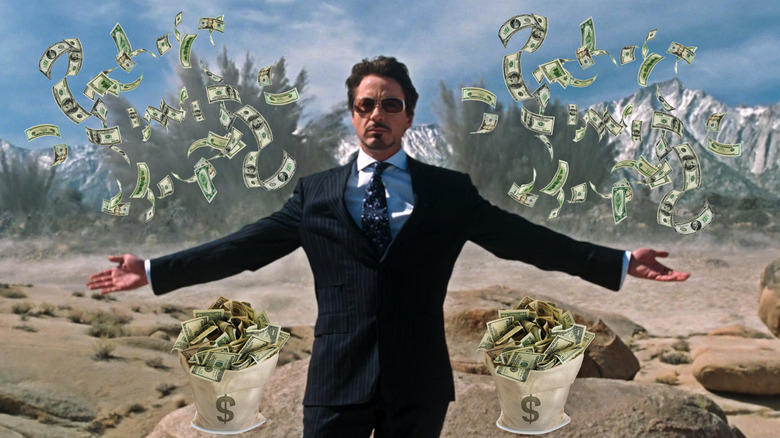
(Welcome to Tales from the Box Office, our column that examines box office miracles, disasters, and everything in between, as well as what we can learn from them.)
If one were to write a book about a handful of movies that defined Hollywood, it would be very difficult to imagine writing that book without including 2008's "Iron Man." While the superhero movie boom certainly began several years earlier with the likes of "X-Men" and "Spider-Man," not to mention "Batman Begins," it was director Jon Favreau's take on Tony Stark that completely reshaped the way people in the movie business think about filmmaking in general. Forget sequels -- cinematic universes are the way of the future!
Yet, the Marvel Cinematic Universe as we know it was merely an idea in the summer of '08 when this movie arrived, with the potential to connect the various films in development at Marvel Studios at the time down the line. Yes, Marvel Studios head Kevin Feige had a rough plan, but that plan was by no means fully formed when this film was coming together. Truthfully, it was hard enough to get this movie made, and it's a miracle it turned out as well as it did. But wildly unexpected success and record-breaking box office gave way to much, much more in the years that followed. AndIt all starts with Robert Downey Jr. and those now-iconic words: "I am Iron Man."
In honor of the 15th anniversary of "Iron Man," we're looking back at the seminal movie, how it came to be Marvel's first in-house production, the sheer number of things that seemed to be working against it ahead of the release, what happened when it finally hit theaters, and what lessons we can learn from it all these years later. Let's dig in, shall we?
The Movie: Iron Man
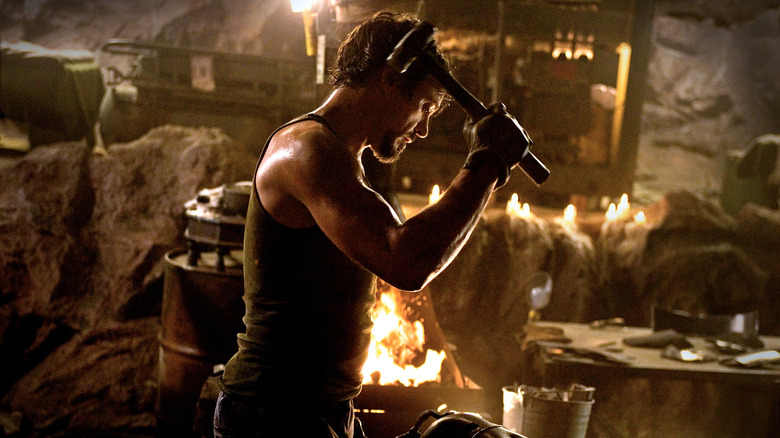
As with so many things, the story of "Iron Man" starts with a trip through development hell. The notion of bringing Tony Stark to the big screen began in the '90s, with Stan Lee first mentioning the film in an edition of "Stan's Soapbox" in 1997. Various iterations of the film were developed and subsequently abandoned over the years, including one at Universal Pictures from director Stuart Gordon ("Re-Animator") that would have been a low-budget affair, and one at New Line from "X-Men" screenwriter David Hayter.
Development on "Iron Man" as we know it, in earnest, began in November 2005 when Marvel Studios had re-secured the rights from New Line. "Right now we're concentrating on finding the right creative talent," then-Marvel Studios head Avi Arad said to Variety. The company, at the time, had secured financing to produce a slate of movies in-house, with Paramount signing up for distribution. "It's not a part of our slate deal," Arad explained, "but we can raise the money to do it if we choose to. We would also have no difficulty licensing it to another studio."
Sony had the rights to "Spider-Man," and many of Marvel's other A-list characters had been licensed to other studios when the company was dealing with bankruptcy in the late '90s/early 2000s. As a result, Marvel Studios had to dive further into the bench of heroes that the general public weren't as familiar with at the time. It cannot be emphasized enough that Iron Man was not well known before RDJ turned him into a pop culture icon (more on that in a bit). Jon Favreau ("Swingers," "Elf") became attached to direct in 2006 when Marvel's slate was still being developed. At that time, that slate included movies like "Nick Fury" and Edgar Wright's "Ant-Man," which didn't come to pass.
Crafting The Story
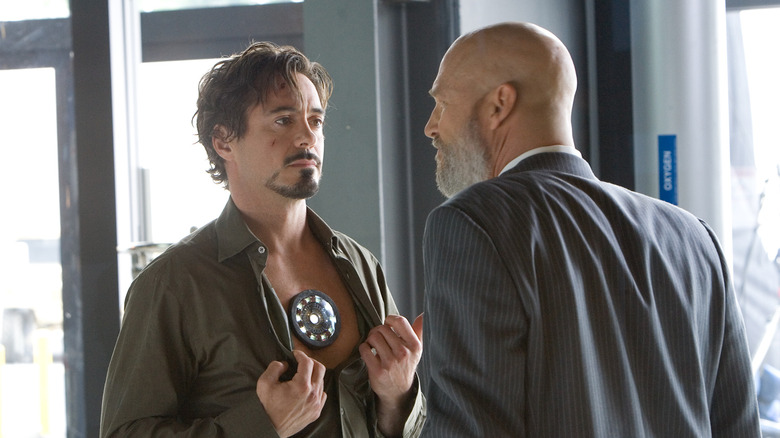
The movie as we know it tells the story of Tony Stark, a billionaire genius who, rather importantly, is the son of the late arms manufacturer Howard Stark. Tony is kidnapped following a weapon demonstration and is forced to build a version of the deadly missile for a group of terrorists. Instead, he builds a high-tech suit of armor, which he uses to escape -- putting the selfish, drinking, gambling playboy on a path to becoming an unlikely superhero.
Despite some elements of the story being updated to suit a modern retelling (such as swapping out Vietnam for Afghanistan) Favreau kept things pretty close to the Marvel Comics source material. Getting to that place was no easy task, though. Various "Iron Man" scripts came and went before Marvel Studios took the project on personally, and it was a work in progress all the way under Favreau's direction.
"Iron Man" was a true script by committee. Relative newcomers Art Marcum and Matt Holloway were hired to pen the initial draft. Mark Fergus and Hawk Ostby, who wrote the much-acclaimed "Children of Men," penned another version. Favreau kind of Frankensteined the two together, with John August doing a polish of that script. Jeff Bridges, who plays the movie's main villain, Obadiah Stane, once commented that "Iron Man" had "no script." In a 2009 interview, the actor said, "We would show up for big scenes every day and we wouldn't know what we were going to say."
Typically, that sort of incomplete, constantly-rewritten script would spell disaster for a blockbuster with this many moving parts -- or any movie for that matter. Amazingly, though, the film we ended up with makes it tough to tell that such problems ever existed.
Casting Tony Stark
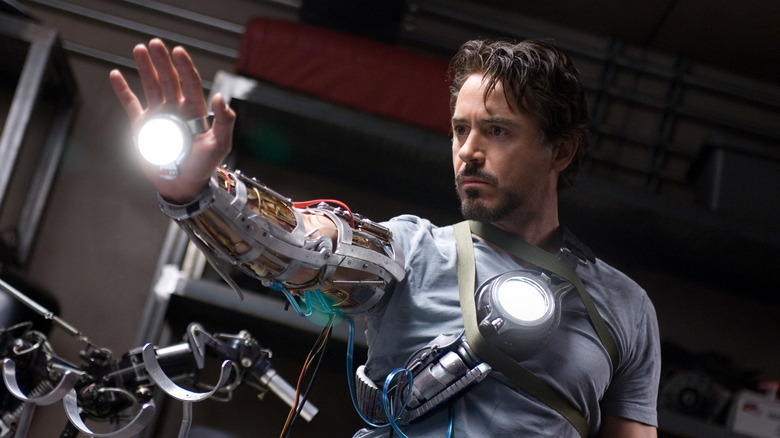
For as many things that needed to go right in putting this movie together, the casting of Tony Stark was truly key. Yes, Robert Downey Jr. got the part and yes, it became his signature role. Yet, it's important to remember that RDJ was far from his career peak at that point, due to his off-screen troubles. He wasn't exactly unemployable, but he certainly wasn't an A-list star, either. But as Favreau explained to IGN in 2006, they didn't need an A-list star:
"What's nice is that those movies don't require an expensive star; Iron Man's the star, the superhero is the star. The success of X-Men and Spider-Man without being star-driven pieces reassures [executives] that the film does have an upside commercially."
Tom Cruise famously flirted with the role earlier on, but that's not what Favreau wanted. Sam Rockwell (who ultimately starred as Justin Hammer in "Iron Man 2") was also considered, but it was Downey's screen test that changed everything. At that point, Favreau knew that he had his guy. The only problem? Marvel wasn't convinced and he had to push very, very hard to make it happen. "It was my job as a director to show that it was the best choice creatively," in a radio interview in 2014. In the end, Favreau was able to get Downey through the red tape. Speaking with USA Today ahead of the film's release, the director elaborated a bit on his reasoning:
"We didn't want to just go with a safe choice. The best and worst moments of Robert's life have been in the public eye. He had to find an inner balance to overcome obstacles that went far beyond his career. That's Tony Stark."
"I'm more diligent than I used to be," Downey said at the time. "I want to show Jon he was right to have faith in me. Whatever questions might have arisen about my life weren't issues with him."
Building Awareness Of Iron Man
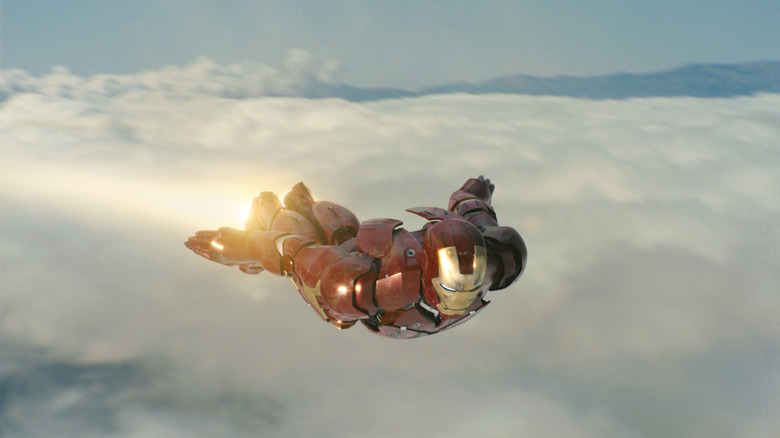
The biggest problem that Marvel faced? Nobody really knew who the hell Iron Man was. That's hard to imagine now, but it's true. Outside of Spider-Man and Batman, very few superheroes were known to mainstream audiences. As a result, Marvel struggled with how to approach "Iron Man." An early idea was to have the film connect directly to Sam Raimi's "Spider-Man 2," with Tony Stark being the man who crafted Doc Ock's mechanical arms. That didn't come to pass. Instead, Marvel focused on building awareness.
Marvel's former Chief Creative Officer and legendary comic book artist Joe Quesada explained in a Tumblr post back in 2016 that Marvel's internal data showed awareness of the character was concerningly low. Kids weren't interested, and Tony Stark was nowhere near the level of Peter Parker or Bruce Banner. As Quesada explained:
"Our focus group research showed that we had some serious awareness issues with the character, especially amongst kids. One of the major takeaways was that kids who had zero knowledge of the character had no interest in him because they thought he was a robot. But when they found out that there was someone in the suit suddenly interest went off the charts."
The solution? Create three animated shorts that had "a simple clean story" to introduce Iron Man to younger viewers. Quesada explained that they had to, "1- Clearly demonstrate that there was a man inside the armor. 2- Show off his wide range of cool powers. 3- Position him clearly as a hero on the same level as Spidey and Hulk by having those characters show how cool they perceive him to be and valued him as a peer." These shorts were headed up by Tim Miller, who eventually directed "Deadpool."
To what degree these shorts are owed credit is difficult to quantify. The main thing is, the deck was not stacked in this movie's favor. But a perfect storm of interesting decisions led to a movie that audiences simply couldn't ignore.
The Financial Journey
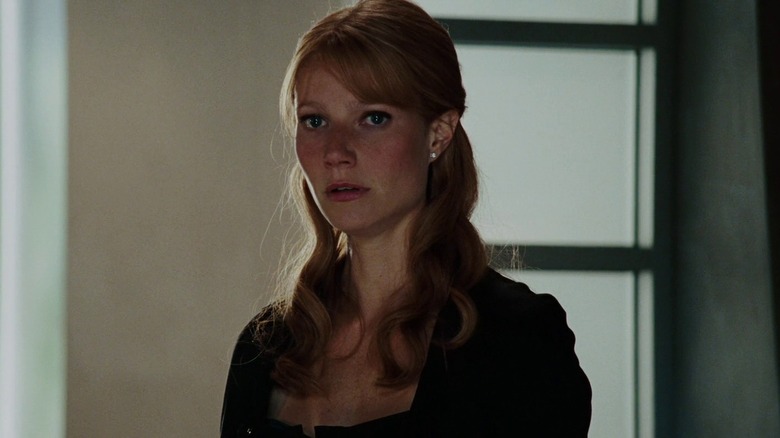
Marvel and Paramount pulled out all the stops in promoting "Iron Man." Favreau and the cast appeared at San Diego Comic-Con in 2006 to build awareness well in advance. A "Super Bowl" spot aired, and there was a pretty big 7-Eleven tie-in, as well as partnerships with brands like Audi and Burger King, with Favreau even directing an ad for the fast food chain. Paramount tried to take what had worked for "Transformers" the year prior and apply it to Marvel's blockbuster gamble. It paid off.
Box office tracking at the time suggested that "Iron Man" was going to debut with around $75 million at the weekend box office on the strength of that marketing campaign. (To be clear, that would have been a big win.) Released on May 2, 2008, the movie did far better than expected, taking in $102.1 million on its opening weekend. The only other new wide release that weekend was romantic comedy "Made of Honor," which debuted to $14.7 million. It was never a competition, and audiences embraced RDJ's turn as Tony Stark with open arms. The only non-sequel to ever open higher up to that point? Sam Raimi's "Spider-Man." It was an instant smash.
Strong word of mouth kept the ball rolling in the coming weeks, with Favreau's film ultimately earning a truly excellent $318.6 million domestically, to go with $266.7 million internationally for a grand total of $585.3 million. Against a $140 million budget, that represented a huge return for Marvel Studios, and proved that the company's plan to produce movies in-house could work. "Iron Man" finished as the eighth highest-grossing movie of 2008 ahead of Pixar's "WALL-E" ($521 million) and just behind "Quantum of Solace" ($589 million). Not bad for a superhero that was called up from Marvel's B-list.
The Lessons Contained Within
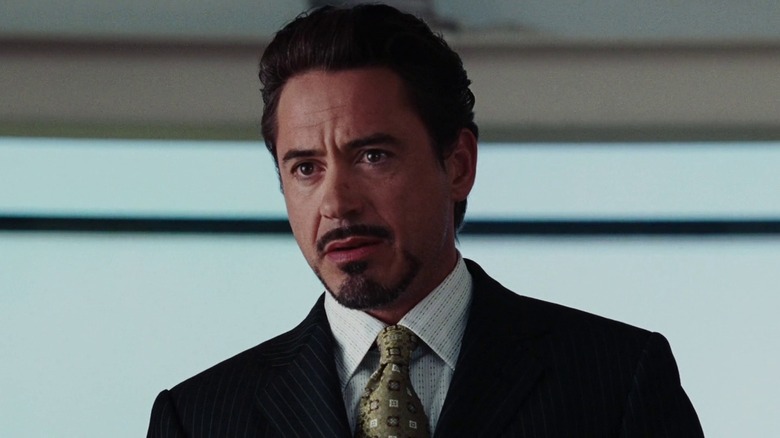
15 years and nearly $29 billion at the global box office later, it is impossible to argue against the strength of "Iron Man" as a piece of popular cinema. It gave Marvel the confidence to proceed with this grand plan of connecting a bunch of disparate franchises and heroes together, leading to "The Avengers" in 2012, which was truly the point of no return. In the years that followed, other studios would try desperately to replicate that template for success in a rushed, haphazard fashion. Zack Snyder's DC Extended Universe, the Dark Universe. There were casualties along the way.
The biggest lesson is that yes, Marvel Studios knew where this could go - but they never put the cart before the horse. They made "Iron Man" the best movie it could be, and took some really worthwhile creative risks in getting to that place. It all started, not just with a good movie, but a great movie. A movie with no winks or nods to a larger universe until Samuel L. Jackson's Nick Fury shows up in a credits scene. It's a movie with an identity on its own terms, first and foremost. Relatively few people cared about Tony Stark before 2008, but this movie made people care. That's a pretty remarkable thing.
More than anything, it's worth remembering that these early MCU films didn't succeed by being Easter egg hunts or only teeing up the ball for bigger things to come. They were individual movies with a true identity that audiences could enjoy as an individual experience. It feels like the MCU is losing sight of that a bit, and it feels like almost nobody else in Hollywood has understood that at all in trying to replicate this formula. Making a good movie is nothing shy of a minor miracle, but a universe is built one good movie at a time. Period. And "Iron Man" was a very good movie.
Read this next: Every Pre-MCU Marvel Movie Ranked
The post Tales From The Box Office: Iron Man Was The Unlikely Superhero That Changed Hollywood Forever appeared first on /Film.
